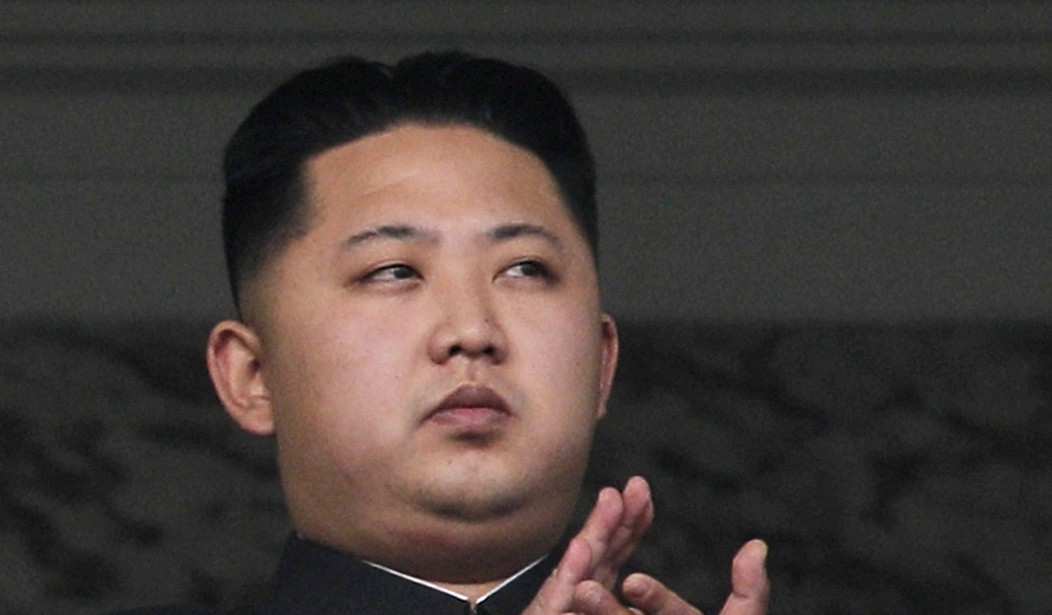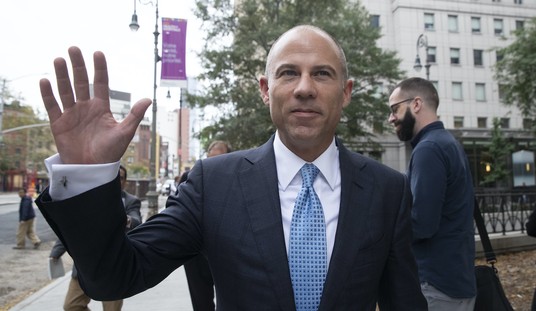The National Security Council presented options to President Trump on how to deal with the growing threat from North Korea which include assassinating dictator Kim Jong Un.
Another option would be to send American nuclear weapons to South Korea.
Both scenarios are part of an accelerated review of North Korea policy prepared in advance of Trump’s meeting with Chinese President Xi Jinping this week.
The White House hopes the Chinese will do more to influence Pyongyang through diplomacy and enhanced sanctions. But if that fails, and North Korea continues its development of nuclear weapons, there are other options on the table that would significantly alter U.S. policy.
The first and most controversial course of action under consideration is placing U.S. nuclear weapons in South Korea. The U.S. withdrew all nuclear weapons from South Korea 25 years ago. Bringing back bombs — likely to Osan Air Base, less than 50 miles south of the capital of Seoul — would mark the first overseas nuclear deployment since the end of the Cold War, an unquestionably provocative move.
“We have 20 years of diplomacy and sanctions under our belt that has failed to stop the North Korean program,” one senior intelligence official involved in the review told NBC News. “I’m not advocating pre-emptive war, nor do I think that the deployment of nuclear weapons buys more for us than it costs,” but he stressed that the U.S. was dealing with a “war today” situation. He doubted that Chinese and American interests coincided closely enough to find a diplomatic solution.
That’s a view held by many experts — that a Chinese-American clash over North Korea or the Chinese militarization of the South China Sea is inevitable. The two sides are just too far apart on those two vital security issues to reach any kind of compromise.
“I don’t think that [deploying nuclear weapons] is a good idea. I think that it will only inflame the view from Pyongyang,” retired Adm. James Stavridis told NBC News. “I don’t see any upside to it because the idea that we would use a nuclear weapon even against North Korea is highly unlikely.”
Two military sources told NBC News that Air Force leadership doesn’t necessarily support putting nuclear weapons in South Korea. As an alternative, it’s been practicing long-range strikes with strategic bombers — sending them to the region for exercises and deploying them in Guam and on the peninsula as a show of force.
Mark Lippert, the former U.S, ambassador to South Korea, said nuclear deployment there is a concept that’s been embraced by a growing number of Koreans.
“Some polls put it at well over 50 percent,” he said. “It’s something that’s being debated, and support for it over time, at least at this point, is climbing.”
Still, he thinks it’s a bad idea, undermining the U.S. objective of a nuclear-free zone and “South Korea’s moral authority toward de-nuclearization of the peninsula.”
Another issue that cuts against placing nukes in South Korea is that it would probably destabilize the South Korean government, already reeling from the impeachment of President Park. A significant and passionate minority would oppose their deployment, leading to possibly violent street protests.
What about assassinating Kim?
“Discussions of regime change and decapitation…tend to cause the Chinese great pause of concern and tends to have them move in the opposite direction we would like them to move in terms of pressure,” he said.
Stavridis, a former NATO commander, said that “decapitation is always a tempting strategy when you’re faced with a highly unpredictable and highly dangerous leader.”
“The question you have to ask yourself,” he said, “is what happens the day after you decapitate? I think that in North Korea, it’s an enormous unknown.”
It’s hard to imagine a worse scenario. Who takes power if Kim is killed? The army would seem a logical choice, but Kim has purged those officers whom he couldn’t absolutely trust. It seems reasonable to assume they would be as closed in and paranoid as Kim.
Worse, there may be several factions vying for power. That kind of chaos simply can’t happen in a country with nuclear weapons. It would be madness to initiate a situation fraught with so many variables.
The final option would be some kind of covert military action, perhaps conducted jointly with the South Koreans. The CIA is being tight-lipped about such a strategy, but clearly, in a universe of bad options, this one has the advantage of being the least imperfect. By only targeting the North’s nuclear infrastructure, we would avoid dealing with a lot of sticky diplomatic issues with China. They may object, but it probably wouldn’t be fatal to our relations.
The ideal situation would be for China to use its influence to convince Kim to dismantle his program or at least place it under international controls. But China, which agrees with the U.S. about the threat, also sees the North’s nuclear program as a convenient way to keep the U.S. occupied and worried — never a bad thing in dealing with an adversary.
The bottom line is that China does not have the incentive to put pressure on Kim to get him to behave. That’s why it’s likely the situation in east Asia is likely to get worse before it gets better.









Join the conversation as a VIP Member